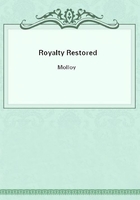
第33章 CHAPTER VI.(1)
The king's intrigue with Barbara Palmer.--The queen arrives at Portsmouth.--Visited by the Duke of York.--The king leaves town, --First interview with his bride.--His letter to the lord chancellor.--Royal marriage and festivities.--Arrival at Hampton Court Palace.--Prospects of a happy union.--Lady Castlemaine gives birth to a second child.--The king's infatuation.--Mistress and wife.--The queen's misery.--The king's cruelty.--Lord Clarendon's messages.--His majesty resolves to break the queen's spirit.--End of the domestic quarrel.
Whilst the king conducted the negotiations of his marriage with Catherine of Braganza, he likewise continued the pursuit of his intrigue with Barbara Palmer. The unhappy fascination which this vile woman exercised over his majesty increased with time; and though his ministers declared a suitable marriage would reform his ways, his courtiers concluded he had no intention of abandoning his mistress in favour of his wife. For Barbara Palmer, dreading the loss of her royal lover and the forfeiture of wealth accruing from this connection, had firmly bound him in her toils. Moreover, in order that he might continually abide under her influence, she conceived a scheme which would of necessity bring her into constant intercourse with him and the young queen. She therefore demanded he would appoint her one of the ladies of the bedchamber to her majesty, to which he, heedless of the insult this would fix upon his wife, readily consented.
In order to qualify Barbara Palmer for such a position, it was necessary she should be raised to the peerage. This could only be accomplished by ennobling her husband, unless public decency were wholly ignored, and she was created a peeress in her own right, whilst he remained a commoner. After some faint show of hesitation, Roger Palmer accepted the honours thrust upon him by reason of his wife's infamy. On the 11th of December, 1661, he was created Earl of Castlemaine, and Baron Limerick in the peerage of Ireland, when the royal favourite became a countess.
And now the merry month of May being arrived, the queen was speedily expected; and on the night of the 13th joyful tidings reached London that the "Royal Charles," accompanied by the fleet, was in sight of Portsmouth. At which news there was great rejoicing throughout the town, church bells ringing merrily, and bonfires blazing brightly; but before the Countess of Castlemaine's house, where the king, according to his custom was at supper, there was no fire, though such signs of joy burned "at all the rest of the doors almost in the streets, which was much observed."Next day the fleet arrived in the harbour of Portsmouth, about four in the afternoon. Heath says the people gathered to receive the bride with all possible demonstrations of honour, "the nobility and gentry and multitudes of Londoners, in most rich apparel and in great numbers, waiting on the shore for her landing; and the mayor and aldermen and principal persons of that corporation being in their gowns, and with a present and a speech ready to entertain her; the cannon and small shot, both from round that town and the whole fleet echoing to one another the loud proclamations of their joy." These good people were, however, destined to disappointment; for though the bride was impatient to land, because suffering from prostration consequent on a rough voyage and severe illness, she was not, in observance of court etiquette, permitted to leave the ship until the king arrived. This did not take place until six days later, Charles being detained in town by reason of some important bills then passing in Parliament, which it was necessary for him to sign.
He had, however, despatched his royal brother of York, then Lord High Admiral of England, to meet her at sea, and give her greeting in his name. Accordingly the duke had encountered the fleet at the Isle of Wight, and gone on board the queen's ship, when she received him in her cabin seated under a canopy on a chair of state. His royal highness expressed his joy at her arrival, presented "his majesty's high respects and his exceeding affection for her," and paid her many compliments. Lord Chesterfield, who had been appointed chamberlain to the queen, tells us: "Although James, in consequence of his near connection with the sovereign, might have saluted the royal bride, he did not avail himself of this privilege, out of a delicate regard to his majesty's feelings, that he might be the first man to offer that compliment to his queen; she coming out of a country where it was not the fashion." The Duke of York presented some noblemen who had accompanied him; after which she introduced the members of her suite. The queen and her brother-in-law then held a conversation in the Spanish language, when James assured her of his affection, and besought her to accept his services. To these compliments she replied in like manner, when he arose to depart.
The queen advanced three paces with him, not withstanding that he protested against such courtesy, bidding her remember her rank.